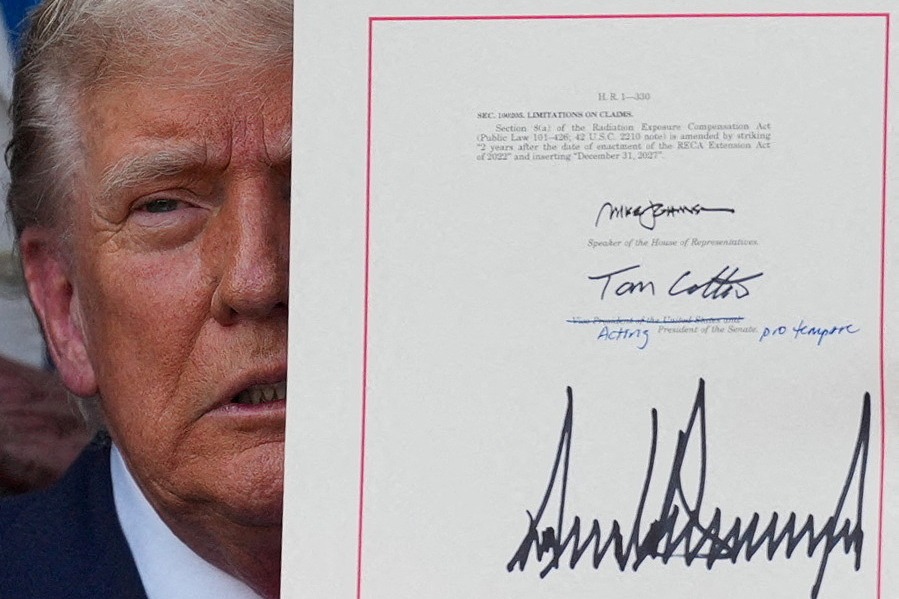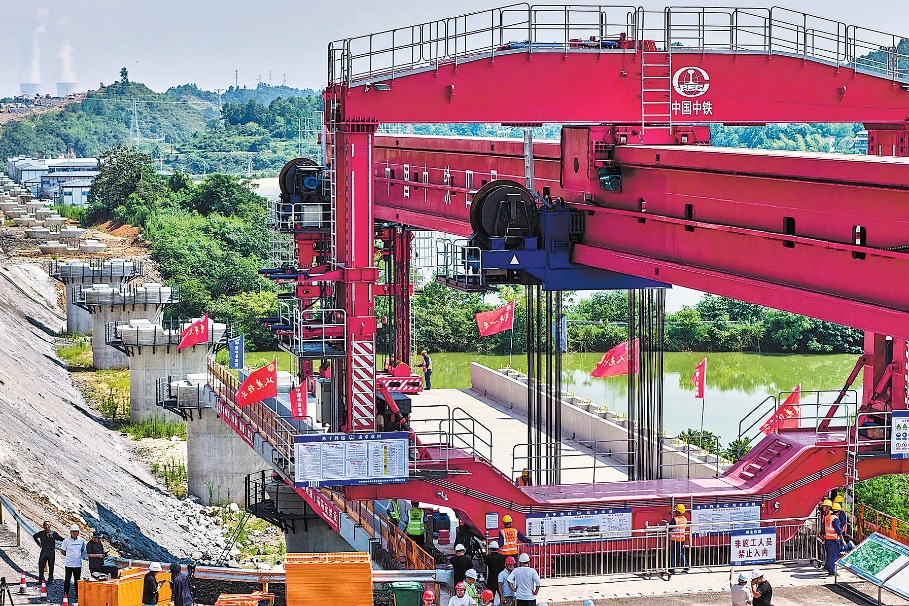Policies should focus on upgrading SMEs, not just emergency relief

Recent reports of the recovery of small and medium-sized enterprises are great news for China's real economy. The government policies that made this possible are partly a response to the economic disruptions caused by the COVID-19 pandemic, but they predate the coronavirus and are designed to support and upgrade the nation's SMEs.
In many ways, the measures to upgrade the labor force through vocational education and to ensure that banks lend to SMEs are reminiscent of the German economic model's emphasis on specialized manufacturers that depend upon and employ well-trained workers.
Standard Chartered's SME Index rose to 53.3 in June from 51.7 in May. Since SMEs make up about 80 percent of urban new hiring, Standard Chartered's employment expectations indicator also rose to 53.2 from 52.1 in the same period. Numbers above 50 indicate an improving situation. Similarly, the SME development index of the China Association of Small and Medium Enterprises rose 3.5 points to 85.5 in the second quarter.
Long before COVID-19 hit the economy, reforms to boost SMEs were paying off. In the 2019 World Bank Ease of Doing Business Index, China jumped 15 places from the 46th to the 31st most business-friendly country in just one year-2018 to 2019.
Since SMEs depend mostly on direct sales, this data shows that consumer confidence and demand is experiencing a robust recovery. Larger businesses can sometimes rely on saved reserves and can be stimulated by loans or subsidies, but small businesses cannot continue unless they are making real sales.
To fight the economic effects of COVID-19, the government has implemented tax, financing and regulatory measures to help SMEs, with a special focus on maintaining employment. Caixin Media calculates that these measures will save SMEs 2.5 trillion yuan ($356.6 billion) this year.
Measures include readjustments of pension contributions, unemployment insurance and worker compensation payments plus 53.9 billion yuan of direct subsidies for employment-all of which make it cheaper for employers to retain employees. Postponing corporate taxes and delaying loan payments allow companies to get through this year's cash crunch.
At a symposium on Monday, Premier Li Keqiang stressed timely implementation of macro policies amid safeguarding employment, people's livelihoods and market entities. He also stressed fiscal, monetary and employment-oriented policies as well as further fee cuts and tax reductions for enterprises.
He added that liquidity should be kept at a reasonable level to alleviate financing problems faced by micro, small and medium-sized enterprises, and modern technology should be applied to developing inclusive finance.
Many SMEs are labor intensive, so they often offer a path for less educated young people to get work experience and to begin saving to start their own enterprises. Many owners of businesses in rural areas or smaller cities began their careers working in lower-level jobs in the big cities. In turn, the businesses they have founded are now offering opportunities for the next generation. As part of the recovery package, migrant workers can receive a one-time start-up subsidy if they return to their hometowns to set up new businesses.
This year, China is devoting tens of billions of yuan to provide vocational skills training for 35 million people and increasing enrollment in vocational colleges by 2 million students. Thus, China is moving decisively in the direction of the German model that encourages students to see vocational training as a highly respectable alternative to university education. Such well-trained workers are an important factor in the success of Germany's manufacturing sector.
Financing is a problem for small businesses in every country. Usually, it is time-consuming, expensive and not very profitable to do the in-depth analysis needed to make loans to SMEs. Left to their own choices, banks would prefer to make consumer loans or to provide financial services. So, if a nation wants to maintain its SMEs, banking regulations need to force banks to develop the lending expertise needed.
Changes in the US banking system have had a largely negative effect on SMEs there. Before the banking reforms of the 1980s and 1990s, about 15,000 small local banks financed SMEs in towns throughout the country. The bankers lived locally and intimately understood the business prospects, and even the character, of local businesses. But, since that time the total number of banks in the US has fallen to about 5,000, which are dominated by 10 huge interstate banks that now hold 90 percent of total deposits. These banks don't have local knowledge to evaluate small business loans. Even worse, they see such loans as unprofitable nuisances and would rather make high interest rate consumer loans. So, it's not surprising that the number of new companies as a percentage of all US businesses has fallen by almost half since 1980.
Wisely, in my opinion, Germany has maintained a system of local banks called sparkasse, whose mission is to support local SMEs. These specialized banks are one key part, along with a vocationally trained workforce, of a system that has allowed German industry to thrive while manufacturing has declined in many other European countries.
China's economy is dominated by a few large banks, but government requirements that they develop the expertise to loan to SMEs can protect the country's entrepreneurial vigor. Developing the infrastructure and experts needed to evaluate small business loans will be challenging for China's banks, but this is essential for the future of the country. Also, there are at least 1,000 smaller county-level banks that will play a key role as lenders to rural SMEs.
SMEs of all sizes are important parts of the Chinese economy. According to the World Economic Forum, "(Private companies) contribute 60 percent of China's GDP, and are responsible for 70 percent of innovation, 80 percent of urban employment and provide 90 percent of new jobs. Private wealth is also responsible for 70 percent of investment and 90 percent of exports."
During a news conference after the close of the session of the National People's Congress, Premier Li expressed strong support for the smallest micro-SMEs-street vendors selling food or small items. Economist Zhou Tianyong estimates that 50 million new jobs could be created by increasing street vending nationwide.
Larger medium-sized businesses are a critical part of China's export sector-often producing specialized export products. As their quality increases, China's medium-sized manufacturing firms will take on a role similar to the famous mittlestand producers of specialized, high-quality products in the German economy.
Especially in services, small businesses make the Chinese retail sector a big employer and are possibly the most efficient and convenient in the world. Retail stores offer opportunities for many young people to get started in the workplace.
And, on the other end of the scale, small start-ups are the primary way that the economy explores new ideas in technology. Entrepreneurs are able to take risks and explore business models that big companies can't implement.
Measures to make SME financing more widely available, provide vocational training to workers and to reduce the tax burden will ensure that China's business climate continues to improve and, most importantly, that SMEs are able to fulfill their crucial role in upgrading China's economy.

The author is a senior staff commentator at China Daily.
Today's Top News
- Gaza 'takeover' will ignite another horrific chapter for the Middle East: China Daily editorial
- STAR shines for innovative companies
- For a more inclusive global future
- Diplomatic solution for Ukraine crisis sought
- Consumption gains steam, drives growth
- Summit seen as chance to warm Sino-Indian ties






























